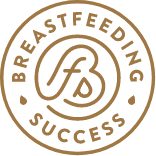By Ali Weatherford
Breastfeeding sometimes requires a big leap of faith. Breasts don’t have units of measure written on their sides so you can see exactly how many ounces of milk are in there! But wouldn’t that be kind of great?
The Kinds of Milk We Make
It might be helpful to know exactly how much milk is in there, but maybe not. Every person makes a different kind of milk. It depends on your own anatomy and chemistry, and it also depends on your baby. The number of calories, carbs, and fat per serving might be really high in some people, and much lower in others. In other words, you might say that some people make “whole milk” while others make “skim milk”. A baby needs less whole milk to grow and more skim milk. Some babies need more or less nutrition too. Some babies are just bigger and need more calories. Some babies use every bit of what they get, while others make more waste.
People who tend to make “whole milk” also tend to produce less milk and the opposite can be true for people who make “skim milk”. There are so many factors to consider, and we just can’t really know. All of these are reasons why breastfeeding requires some level of trust that everything will just work out. It usually does.
So why do SO many people worry that they’re not making enough milk?
Besides the fact that you can’t exactly SEE how much milk is in there and how much your baby is drinking, there are some things that happen in the first week after giving birth that make things even more confusing.
Early Milk
When your baby is born, your body provides colostrum. Colostrum is the first milk. It’s different from the milk that will be made a little later on. It’s extra dense and concentrated, but there is only a small amount. Your breasts probably won’t seem much different. You won’t see your baby taking big swallows of milk. They only get about a teaspoon at a time, but that’s all they need because their stomachs are still very small. They’ll just eat more often at first. It’s not very dramatic, and the milk supply is not obvious.
But then, usually after about 3-5 days of feeding your baby colostrum, your body will start to change. It is often a very sudden and dramatic change. Your breasts might suddenly fill up with milk. You might be able to see and feel all of the swollen milk glands. Your breasts might get very large and firm, and you may even see popping veins. You might notice that your baby is taking big gulps of milk. You might leak a lot and even see milk spraying out of your nipples.
When Engorgement Happens
This change can be a little overwhelming. The baby might have a little trouble adjusting to so much milk and have trouble emptying both breasts. Your breasts might feel very full and uncomfortable. It can even be painful for some people. This is called primary engorgement. We have this simple guide to help you understand and manage engorgement.
Fortunately, engorgement is a temporary problem for most people. After 48-72 hours, most people will see that the milk production decreases and things stabilize. BUT sometimes this is unexpected and people assume there is a problem.
Going from an oversupply of milk during engorgement to a normal amount of milk can feel like a drop in milk supply. Even though this is normal, some people worry that there is not enough milk without those obvious signs of oversupply. It’s important to stay relaxed and just continue to follow your baby’s lead.
You shouldn’t do a lot of overstimulation of the breasts using a pump to extract milk when you’re engorged. You also shouldn’t need to do this AFTER the engorgement goes away because you think your supply is too low. When your baby wants to eat, offer a breast. Sometimes they want to eat a lot, and sometimes it will be less. That is also very normal. They have extra hungry days and not-so-hungry days. Your milk supply tends to keep up really well when you can just “go with the flow” and let your baby’s hunger and satiety cues lead the way. But it does take some faith and patience!
If you’re struggling to get the hang of breastfeeding with your new baby, or just want to talk to other parents, we invite you to join our free Bosom Buddies: New Parent Support Group, which meets weekly online. Our IBCLC facilitator will help you work through breastfeeding, sleep, and other challenges new parents experience.

